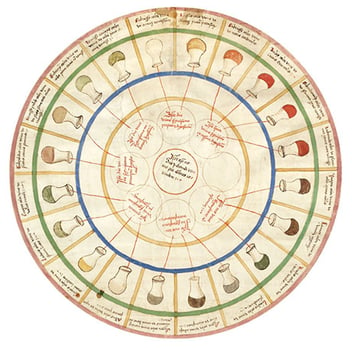June has been designated as Men’s Health Month, a time for healthcare providers and industry stakeholders to encourage men and boys to take control of their health by making good decisions.

According to data1 from the Centers for Disease Control and Prevention the percentage of men aged 18 and over in fair or poor health was 13.2% in 2021. Clearly, there is work that needs to be done.
By scheduling an annual physical (which should include blood tests), men can better determine how healthy they are in key areas, and where they may need to make changes. The following are some simple – but impactful – tests doctors will typically order to diagnose a man’s health, divided into the categories of reproductive health and overall health.
Reproductive Health
The following are three common areas tested to gauge men’s reproductive health:
- Testosterone. Testosterone is known as a "male" sex hormone, This test measures the amount of testosterone in a sample of the patient’s blood to assess their health. 2
- Prostate-Specific Antigen Test (PSA). The PSA test is done to help screen for and follow prostate cancer in men. 3
- Sexually Transmitted Infections (STIs). These infections are mostly spread through sexual activity. Tests ordered may include syphilis, chlamydia, gonorrhea, and HIV. 4
Overall Health
There are several tests important for monitoring men’s overall health. These tests include:
- Thyroid Testing. The thyroid gland processes hormones that regulate the body's metabolism (weight, temperature, energy). Thyroid blood tests are used to tell if your thyroid gland is functioning properly by measuring the amount of thyroid hormones in your blood.5
- Thyroid-stimulating hormone (TSH). This is usually the first test your provider will do to check for thyroid hormone imbalance. 6
- Free thyroxine (FT4). A free thyroxine test measures the level of thyroxine (T4) circulating in the blood that is available to affect the body tissues. Too much or too little T4 can indicate thyroid disease. 7
- Lipid Tests. A lipid panel is a common blood test that healthcare providers use to monitor and screen for your risk of cardiovascular disease. 8 Tests included in this panel are typically Total Cholesterol, Low-density lipoprotein (LDL) cholesterol, High-density lipoprotein (HDL) cholesterol, and Triglyceride.
- Complete Blood Count (CBC). A complete blood count (CBC) is a blood test that looks at the different cells found in the blood (white cells, red cells, and platelets) as well as assesses concentration of hemoglobin and hematocrit. It’s used to look at overall health and find a wide range of conditions, including anemia, infection, and leukemia. 9
- Comprehensive metabolic panels (CMP). This is a panel of tests measuring different substances in your blood to assess over health and the health of specific organ systems. Included tests are glucose, calcium, total protein, bilirubin, creatinine and albumin. 10
- Hemoglobin A1c. A simple blood test that measures your average blood sugar levels over the past 3 months. Results are used to diagnose and monitor prediabetes and diabetes11
- Urinalysis. Tests your urine to detect and manage a wide range of disorders, such as urinary tract infections, kidney disease and diabetes. 12
Resources:
1 Men’s Health Statistics, CDC
2 Testosterone Levels Test, Medline Plus Health Information
3 Prostate-Specific Antigen Test, Medline Plus Health Information
4 Sexually Transmitted Infections (STIs), Medline Plus Health Information
5 Thyroid Testing, Cleveland Clinic
6 TSH, Medline Plus Health Information
7 FT4, Medline Plus Health Information
8 Lipid Tests, Cleveland Clinic
9 Complete Blood Count, Mayo Clinic
10 Comprehensive Metabolic Panels, Cleveland Clinic
11 Hemoglobin A1c, CDC
12 Urinalysis, Mayo Clinic



Share Article